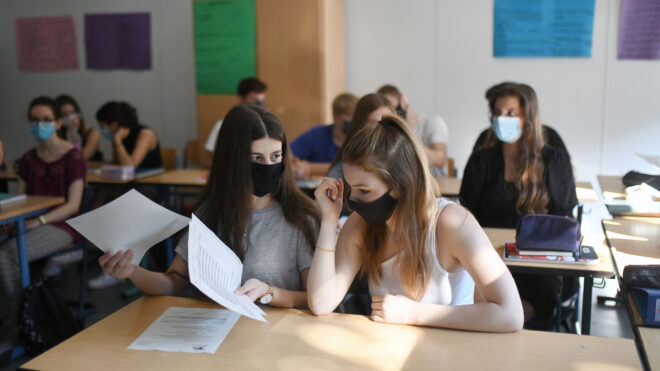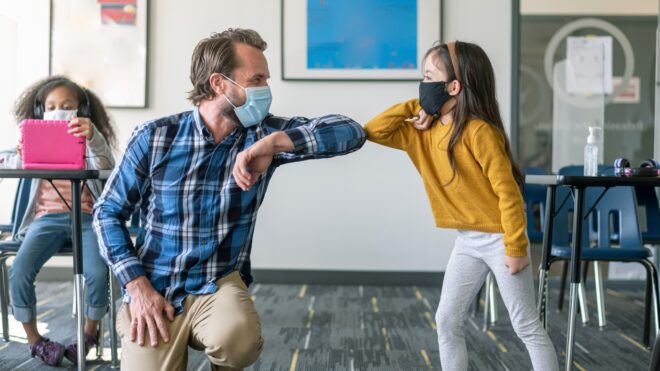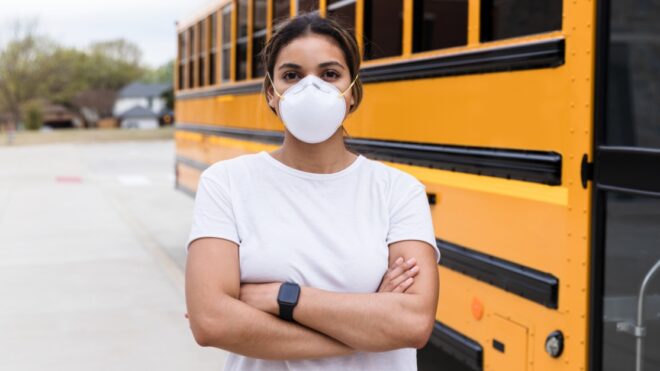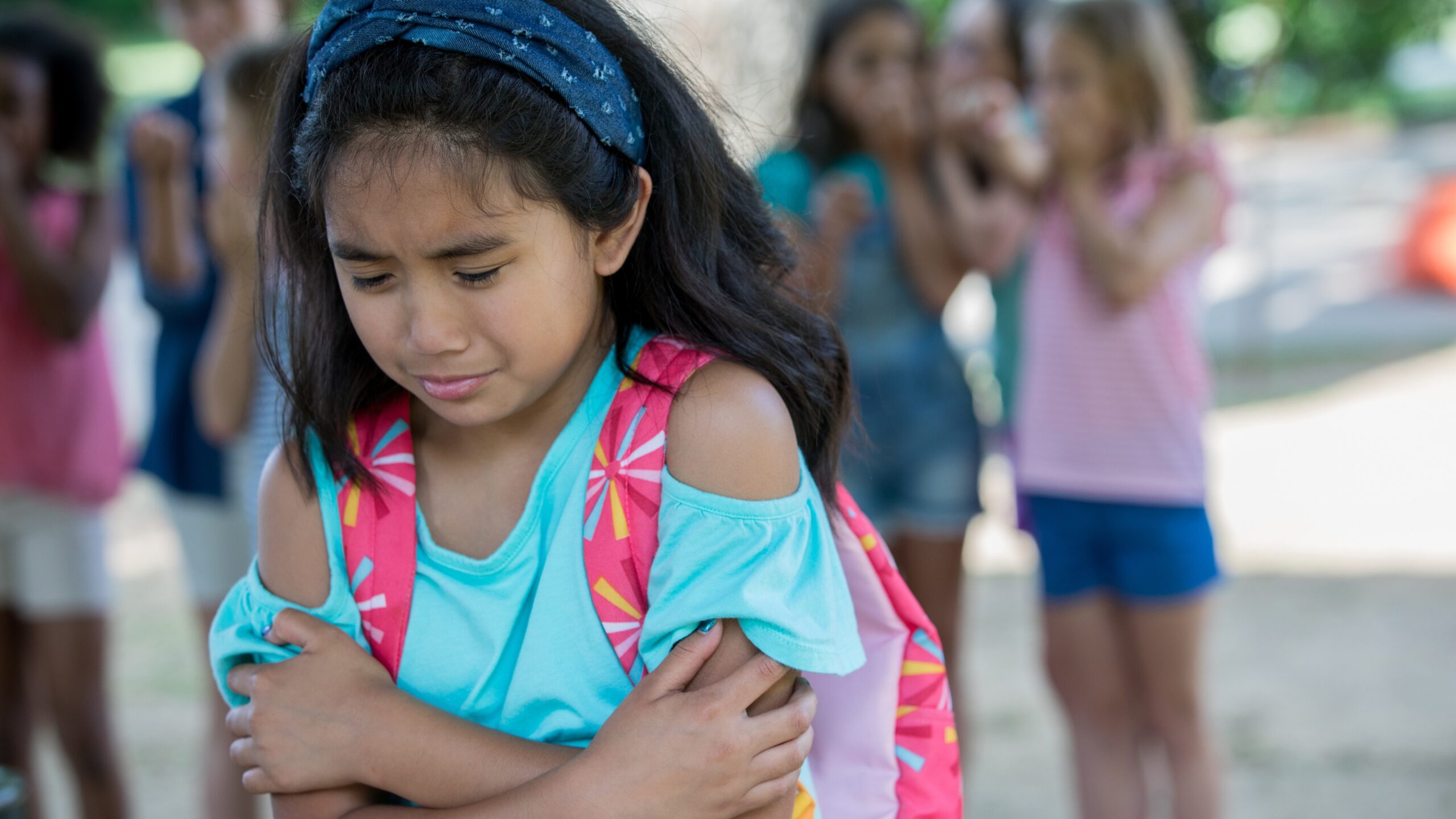
Each year, a group of children really dread going back to school. It has nothing to do with their teachers, their assignments, or their friends, but it has everything to do with being worried about being bullied kids. It can be tough for parents to know what to do to help their children, especially when their kids are contending with bullying at school. Family therapist Jodi Aman has been working with children and their families for decades, and she recently sat down for a virtual chat with LittleThings about childhood, stress, and bullying.
The Centers for Disease Control and Prevention (CDC) and the Department of Education (DOE) define bullying as a behavior that includes three crucial elements:
- Unwanted aggressive behavior
- Observed or perceived power imbalance
- Repetition or high likelihood of repetition of bullying behaviors
Because Jodi works with so many different families and kids, we also wanted to ask her for tips that parents of kids who bully can use to hopefully help their children work toward no longer bullying others.
How To Talk to Your Kids About Being Bullied

Jodi knows that a lot of kids feel anxious about returning back to school (even if it's remotely) for one pretty intimidating reason: Doing so means they'll have to come face-to-face with bullies again. She offers three big tips for parents of children who are struggling with bullying-related anxiety, plus how friends can help.
1. Practice together.
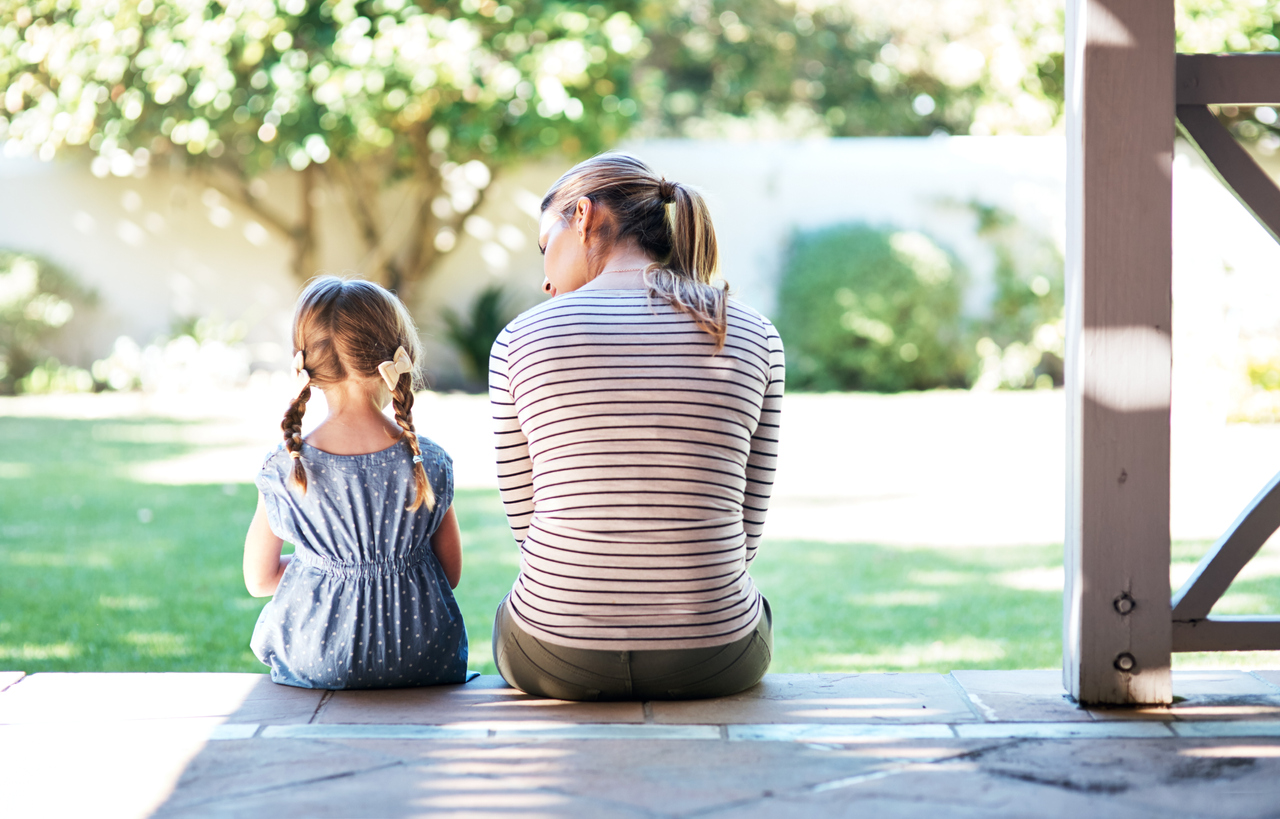
It can be really helpful for parents to role-play with their children and help them come up with imagined scenarios in which they are bullied — and what responses might work. Jodi says:
"Go over some bullying scenarios with your kids, and make them come up with ways to respond to each one. This brainstorming will open their problem-solving mind so when they are in a situation they will trust themselves and be able to think their way out, rather than freezing or doing something unsafe. Remind them where to go for help at school and that they can always talk to you when they get home."
2. Really explain why bullying happens.
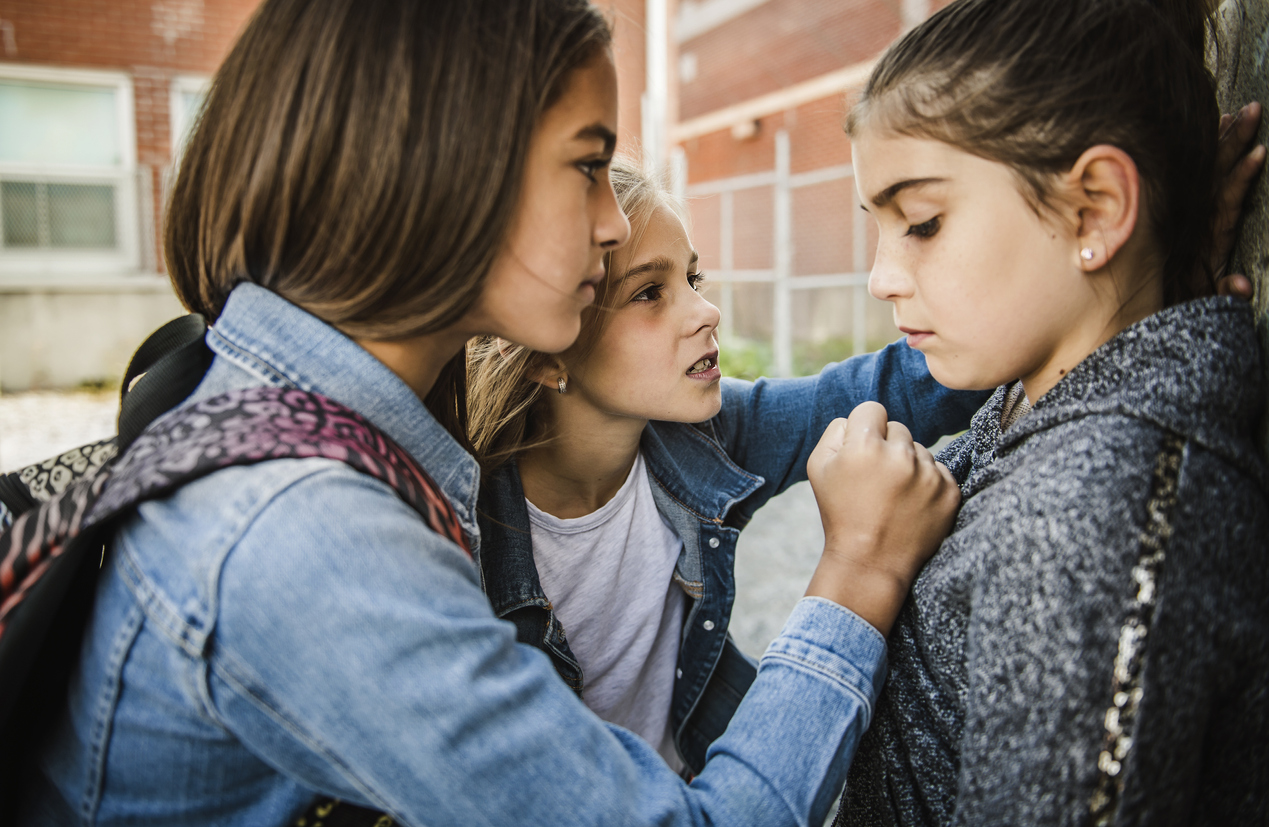
When your child is bullied, it can be hard to see anything outside of that; after all, this is your baby! But practicing empathy is a wonderful thing to do, even when it's also exceedingly difficult. After all, it takes a lot to try to understand why a child bullies others. However, Jodi suggests that parents should try to explain the whys of bullying behavior anyway:
"Let them know why kids bully. Just saying that 'they are jealous' isn't enough to understand why someone might be jealous. Explain that people are mean because they don't like themselves. Go over examples from TV or movies so they understand this concept. This will help them not take the mean comments into their hearts."
Jodi also explains that bullying can mask an internal struggle that bullies are dealing with: "This is the thing: People are not mean because they don't like you; they are mean because they don't like themselves."
3. Talk about their friends.

Sometimes our kids don't choose the best friends for themselves, and that's OK. It's all part of learning how to live on this planet. But it might be worth examining your child's social circle with them, especially if some of their "friends" are the ones doing the bullying.
"Some friend groups have cultures of drama, and this may not be the best place for your child's tender heart," Jodi says. "If your kid is being excluded, have them use their noticing skills to find the nice kids. They are always there and may be just the friend group your child is looking for. "
4. Teach your kids to help others.
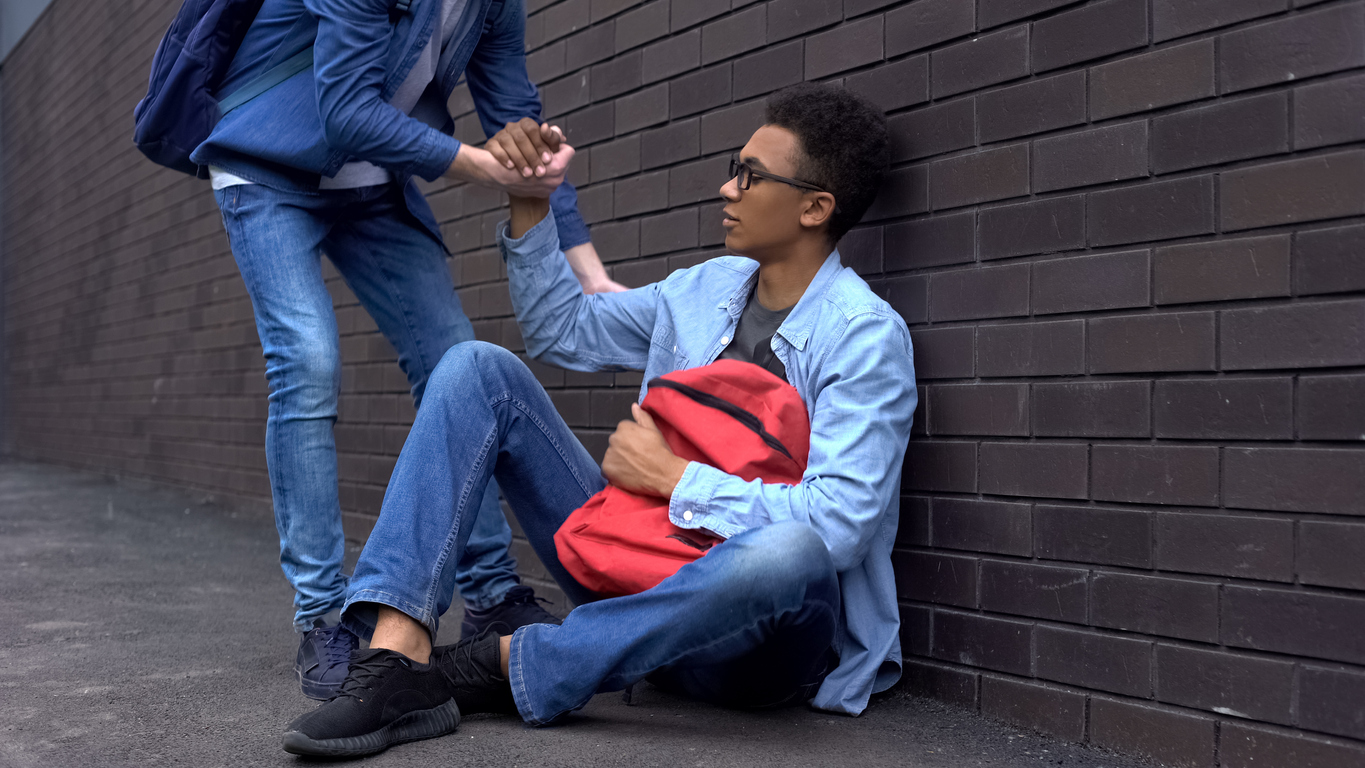
Your kid may or may not be bullied, but they might know someone who is, or witness bullying in the hallway or classroom. It's also important to teach your children not to simply be a bystander when someone else is suffering.
"Ask your kids about helping their friends when they are bullied," Jodi says. "Do they stand up to them? Do they check in with them? Make sure you go over these options for how not to be a bystander."
How To Know Your Child Is Being Bullied
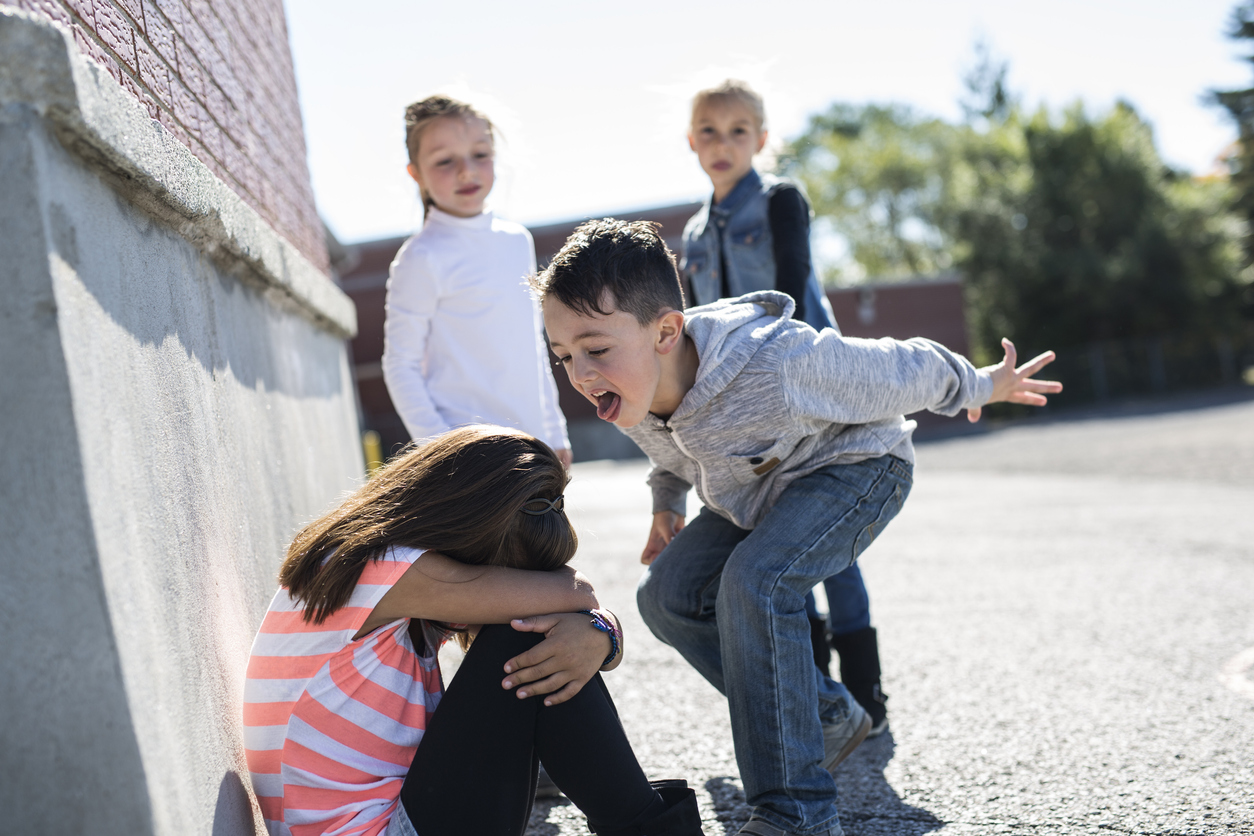
It can be difficult for parents to know if their child is being bullied, especially as their kid gets older. Some children don't want to share this information if they can help it; being bullied can feel shameful and embarrassing, or your child might feel like they don't want to be a burden.
Jodi shares that the effects of being bullied can often manifest as unusual anxiety:
"The stress of being bullied will come out in irritability, not wanting to go to school, overall malaise, and disinterest in activities. It may also come out in worries about something else, like their parents dying in a car accident. These are not specific to bullying. Stress about anything they are experiencing comes out in different ways. If you notice any change, ask questions to find out what is going on!"
How To Know If Your Child Is the Bully
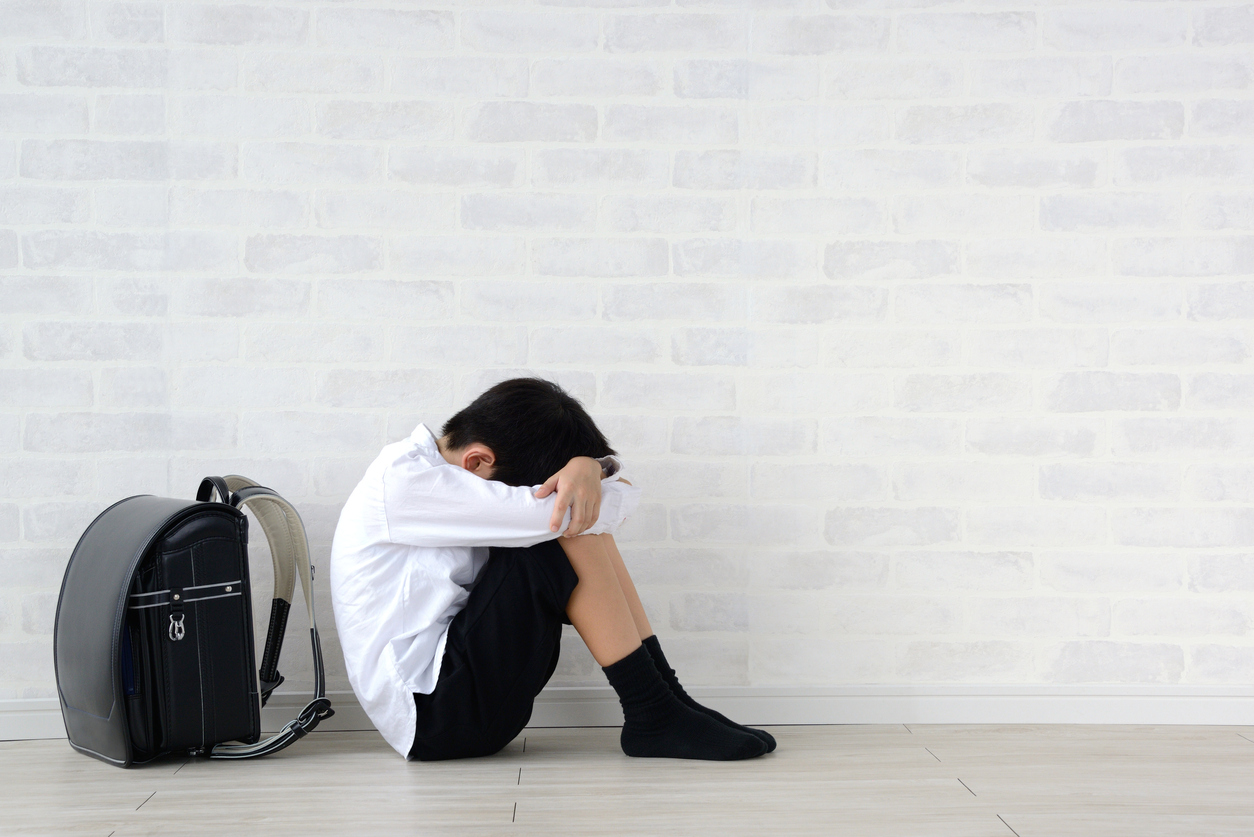
Likewise, some parents may not realize (or accept) that their own child is a bully, even when they're told so by school officials. Jodi says that schools often take very clear, intentional steps when communicating to parents that their child is bullying others:
"Calls from the teachers or principals stating this. If you are around your child and other children and they seem to be bossy or trying to control the situation. Or if they use manipulative behavior. If you overhear your child and a friend speaking negatively about another child who is not present, I would intervene and open discussion."
Cyberbullying Is Real

Cyberbullying is bullying that takes place over an electronic device, such as a tablet, computer, or smartphone. It's definitely on the rise, especially as more students than ever are connected to social media and the internet. When a student engages in cyberbullying, they are usually sending threatening, disparaging, or otherwise cruel messages to another student. The internet makes it easy for multiple students to attack another in this manner, and cyberbullying can be especially tough to combat.

Stop Bullying explains that there are a lot of avenues for cyberbullying:
- Social media, such as Facebook, Instagram, Snapchat, and TikTok
- Text messaging and messaging apps on mobile or tablet devices
- Instant messaging, direct messaging, and online chatting over the internet
- Online forums, chat rooms, and message boards, such as Reddit
- Online gaming communities

Jodi knows that cyberbullying is even a problem during the health crisis, because kids are looking for something to do, and some of them are turning on one another. If your child is being bullied online, she says that it's important to look at everything together:
"Go by the 'don't do it alone' tenet. Have them show you what is happening so they are not dealing with it alone. You can help them decide why people are doing what they are doing and how to respond. Either block and ignore or get more help when it is concerning. You will help them make meaning around it so they don't automatically take it into their heart."

Jodi also says that it's important to help your kids learn balance if they're experiencing cyberbullying. It can be so tempting for a child (or adult!) to be on their device as often as possible, but helping your kid learn to take time away from their device can do wonders for how they respond to cyberbullying from others.
"Now that cyberbullying is a thing, it needs to include how to handle this," Jodi says. "How to create a life and relationships outside of your device to offset the risks that come with too much phone use. Of course, this is a conversation that is bigger than bully prevention."

